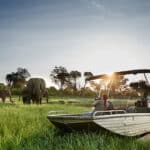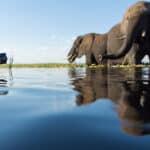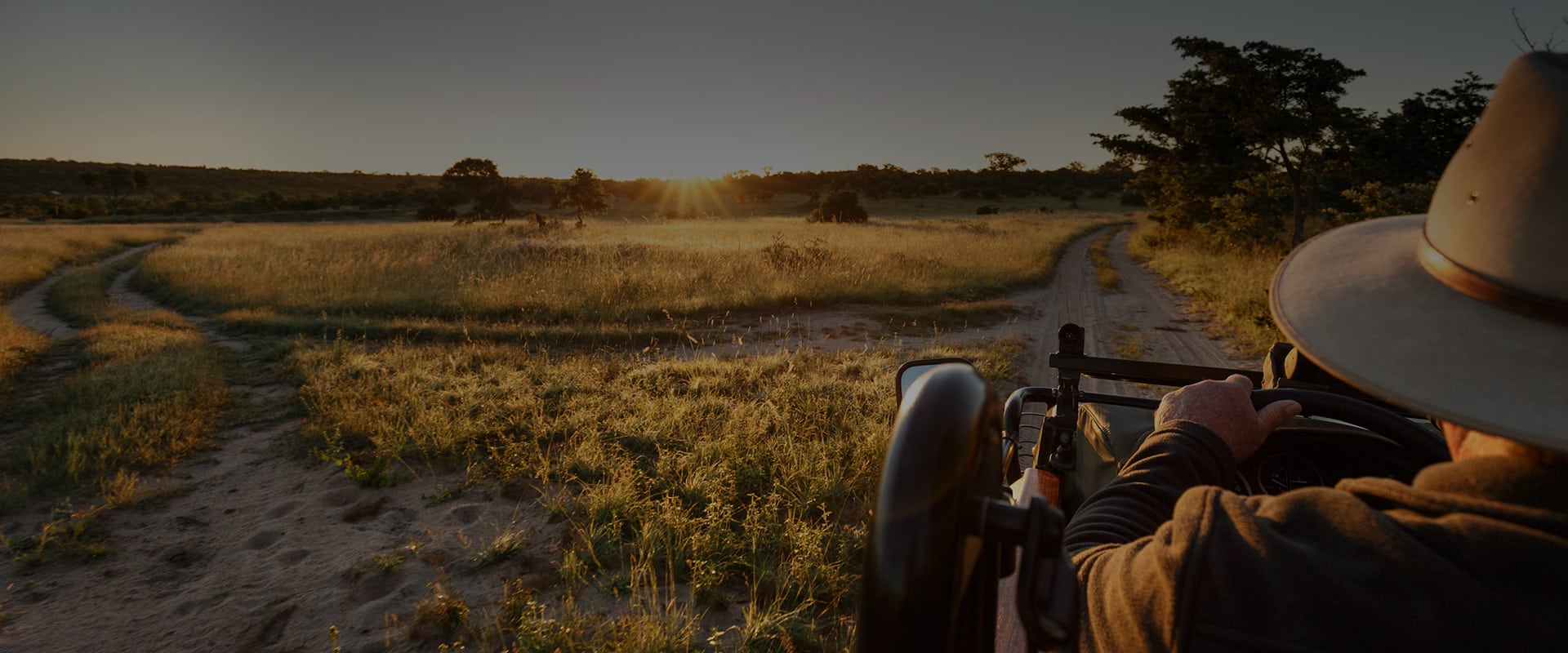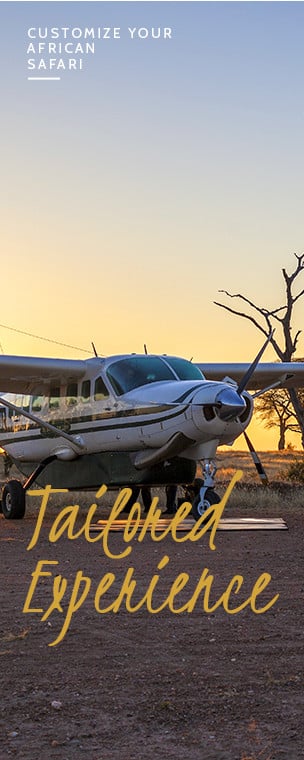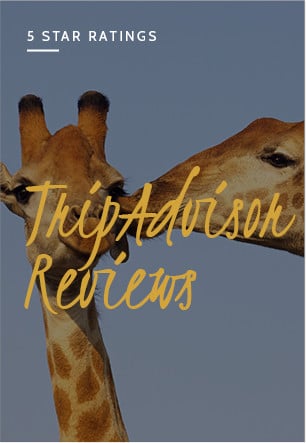What You Need to Know About Safaris
These frequently asked questions should cover most of your concerns, but the Jewel of Africa Safari’s team is just a call or email away if there is anything else you’d like to know.
Before Booking Your Safari
Is there a ‘best time’ of the year to travel on safari to Southern and East Africa?
Southern Africa is a year-round destination because the different regions are spectacular at different times.
If your main aim is to go on a wildlife safari in Southern Africa, then our winter months from May to September are the best. This is the dry season for most of the game park areas so you will have weeks of lovely sunshine and comfortable temperatures during the day. Being the dry- season you can see deeper into the bush as the grass is sparse and most of the trees lose their leaves. The dry season offers excellent game viewing and more reliable road conditions. Wildlife gathers around the limited water sources, making it easier to spot animals.
The winter months are also the better months for safaris to the Okavango and Chobe in Botswana and Victoria Falls, Hwange and Mana Pools in Zimbabwe. However, this is regarded as the peak season, and is generally more expensive than when booking at other times of the year.
In summer, the temperatures can reach between 30 and 40 °C here. However, in countries like South Africa and Mozambique, summer is the best time to visit the local beaches and coastal resorts. In some areas of South Africa, summer often coincides with the rainy season, resulting in lush, green countryside and lovely scenery.
The best time to travel to East Africa is during the dry months. The rainy season is from April to June – and there are short rains from late November through December. But, it is often less expensive to travel during the long rainy season. July and August are generally extremely busy months in East Africa, offering comfortable temperatures in addition to it being a popular travel time worldwide. It is important to book in advance.
Which country is the best to visit in Africa for a safari?
There is no definite answer, it may depend on whether you have been to Africa previously and what type of safari experience you are looking for, and also which activities you want to do.
However, if the goal is merely to experience Africa and its wildlife then your options are many. Each area and each game reserve in Africa are unique and offer something different, so it is advisable to visit 2 or 3 different countries, areas or game reserves while on safari.
If you are a first-time visitor to Africa, then I would suggest you start with a safari to South Africa and, if possible, add some time in neighbouring countries (Botswana, Namibia, Zimbabwe and Zambia) to your itinerary.
The Kruger Park area is fantastic but offers a very different game viewing experience when compared to Chobe National Park or the Okavango Delta in Botswana, or the Kalahari and Etosha National Park in Namibia. The Victoria Falls from Zambia or Zimbabwe is a stunning 3 or 4 day add on to any safari.
What level of luxury and type of accommodation can I expect on my tailor-made Africa safari?
Our accommodation portfolio includes 3-star, 4-star and 5-star accommodation ranging from hotels and guesthouses to lodges and tented camps. We base the accommodation included in a safari package on your budget and preferences, and we will try our best to book you your preferred level and type of accommodation.
Is it easy to fly to Africa for a safari?
Yes, it is. Served by numerous international carriers and home to sophisticated world-class airports, flying into Africa is as easy as flying to anywhere else in the world. Africa is however an enormous continent with various international and national airports acting as gateways to its remote islands and iconic safari destinations – you’ll need to know which gateway airport best serves the destinations you have in mind.
From North America you can fly via a European city such as London, Amsterdam or Frankfurt. You can also fly direct to South Africa from New York or Washington DC. From December 2019 direct flights will be available between New York and Cape Town, lessening time spent travelling by 4 hours.
The two main hubs in Africa are Johannesburg in South Africa or Nairobi in East Africa. You can fly direct from Europe into other African cities such as Cape Town, Dar es Salaam, Kilimanjaro and Lusaka. You would fly into the nearest African city from where your safari starts. From there we will arrange and book your flights to smaller airports.
Once you’ve touched down at one of Africa’s gateway airports you’ll need to move on if you’re not staying in the city itself. Flying around Africa – from the international hub to your final destination – can involve a variety of transport mediums, several of which can add immense value to your journey.
For regional and domestic flights, Jewel of Africa Safaris will only use accredited international airlines (IATA members). Shorter distances and flights into remote destinations that use ‘bush airstrips’ are best served by scheduled or non-scheduled charter flights that may be shared or private. Light aircraft that seat four to six people are used on these flights.
Is it safe to travel in Africa on safari?
The short answer is ‘yes’. Africa derives a significant portion of its foreign income by the spending that international visitors contribute to a country. It is in both the private companies and government’s interests to keep the visitor safe in their visiting country.
Most safaris take place in remote wildlife areas, away from villages, towns and cities, and so the risk of crime to visitors travelling to tourist destinations are generally very low.
The transfers (by road or air) between airports, hotels and lodges are operated by our tour guides, reputable transfer companies or by the properties themselves. This means you will not be unattended at any time during your safari and your chances of encountering problems are minimal.
However, no country and city is 100% safe, therefore it is wise to take precaution when travelling and be alert as you would in any situation, and let common sense prevail.
How do I book my tailor-made safari with Jewel of Africa Safaris?
Once you decide to book your safari with us, let us know and your Jewel of Africa Safaris travel specialist will send you a booking confirmation letter and invoice for the 25% deposit payment which is necessary to confirm the booking.
How can I pay for my tailor-made Africa safari when booked?
You can pay for your safari by either credit card or EFT. When paying by credit card you can use the payment portal on our website to process the payment. We will provide you with detailed instructions for this process. We accept VISA, MasterCard and AMEX credit cards. Payment is accepted in South African Rand.
Preparing For Your Trip
Do I need a visa to travel to Africa and how much does it cost?
Entry requirements for each African country depend on your nationality as per your passport. We will send you detailed information on which type of visa to get, as well as the associated cost. For instance, single-entry and double-entry visas are available as well as joint visa’s for Zimbabwe and Zambia. Some visa’s can also be applied for and paid online. Some visas also need to be applied for ahead of time, and others can be acquired on your arrival at the airport.
US citizens are exempt from visa’s for South Africa and Botswana. From August 2019, New Zealand nationals are also allowed to travel to South Africa visa-free.
How much luggage can I bring with me on my Africa safari?
The luggage guidelines differ between flight routes and airlines, but when flying with small charter airplanes your luggage weight and type and size of your bag will be restricted. We can provide you detailed information on this at the time of booking.
What is Malaria?
Malaria is a potentially fatal illness of tropical and subtropical regions. The disease is caused by a parasite, which is transmitted to human beings bitten by infected Mosquitoes.
Which areas harbour Malaria? Within South Africa’s borders the disease is encountered mainly in Northern and Eastern Mpumalanga (Kruger National Park area), Northern Kwazulu-Natal and the border areas of the Limpopo and North West provinces. Malaria is also encountered in the highly populated areas of Zimbabwe, Zambia and Botswana.
Malaria transmission is at its highest during the warmer and wetter months of November through to April. From May through to October the risks of acquiring Malaria are reduced to almost zero.
How to prevent Malaria? Prevention of Malaria relies on adopting personal protection measures designed to reduce the chances of attracting a mosquito bite, and the use of appropriate anti-malarial medication are important, and neither should be neglected at the expense of the other.
Personal protection measures against Mosquito bites include:
• The use of an appropriate insect repellent containing Di-ethyl Toluamide (Deet) every day during your safari. Some lodges will supply this but remember to pack your own.
• Wear clothing that conceals as much of the body as practical, especially at dusk and at night when mosquitoes are most active.
• Sleeping under Mosquito nets (as supplied by your lodge) and the spraying of sleeping quarters with a suitable Pyrethroid containing insecticide. Some lodges spray their rooms and surrounding dams where Mosquitoes breed with an eco-friendly Pyrethroid on a weekly basis.
There are game reserves like Pilanesberg and Madikwe in South Africa where a safari can be enjoyed in a malaria-free environment, which is especially helpful for families with very young children.
Anti-Malaria tablets (Prophylaxis)
There are a number of different types of Anti-Malaria tablets available. Choosing one depends both upon the particular area being visited, and your own medical history. Within South Africa’s borders the recommended tablets are Mefloquine (Mefliam) or Doxycycline as being the most effective. Both these drugs require a prescription. As of 2019 South Africa also offer over-the-counter anti-malaria tablets. However, best to speak to your local pharmacist or travel clinic 4 -6 weeks in advance of your safari. Most drugs need to be taken from before your safari starts, during your safari and also after you return home.
No method of Malaria protection is 100% effective and there is still a small chance of contracting Malaria despite the taking of Anti-Malaria medication and the adoption of personal protection methods. This does not mean that Anti-Malaria and personal protection measures should be neglected, simply that any traveler developing possible symptoms of Malaria should seek medical advice despite having taken the prescribed precautions.
Malaria Symptoms
Symptoms of Malaria may include a generalized body ache, tiredness, headache, sore throat, diarrhea, and fever. It is worth emphasizing that these symptoms may not be dramatic and can easily be mistaken for an attack of influenza or similar non-life-threatening illness. Deterioration can then be sudden and dramatic, with a rapid increase in the number of parasites in your bloodstream. A high swinging fever may develop, with marked shivering and dramatic perspiration. If you develop any Influenza-like illness or fever within seven day of entering, or six months of departing a Malarious area, seek immediate medical attention. Blood tests should be taken to check for possible Malaria infection. It may be sensible to have a second blood test taken if a first test is negative for Malaria, to be certain of excluding the disease.
What is travel insurance and is it necessary for my safari to Africa?
You can only travel with Jewel of Africa Safaris if you have travel insurance.
Travel insurance is insurance that is intended to cover medical expenses, trip cancellation, lost luggage, flight accident and other losses incurred while traveling, either internationally or domestically.
Travel insurance can usually be arranged at the time of the booking of a trip to cover exactly the duration of that trip, or a “multi-trip” policy can cover an unlimited number of trips within a set time frame. Some policies offer lower and higher medical-expense options; the higher ones are chiefly for countries that have high medical costs, such as the United States.
All insurance is solely the responsibility of the client. Before a client commences a tour, he/she should arrange his/her own insurance with protection for the full duration of the travel, to cover including but not limited to, personal injury, damage and loss of personal items including but not limited to camera equipment and other electronic equipment, medical expenses, repatriation expenses and loss of luggage. If a Client falls ill, all hospital expenses, medical expenses, doctor’s fees and repatriation costs are the Client’s responsibility and the Company shall not be liable for any refund of the tour rate whatsoever.
Which currencies are used in Africa and where can I exchange it?
The local currencies of countries that Jewel of Africa Safaris operates in, is as follows:
• South Africa: South African Rand (R)
• Zimbabwe: Zimbabwean Dollar (Z$)
• Zambia: Zambian Kwacha (K)
• Botswana: Botswana Pula (P)
• Namibia: Namibian Dollar (N$)
In South Africa it is recommended to exchange currency into local Rands as most establishments will not accept foreign currency or will give you a very bad rate of exchange. Credit cards are widely accepted.
Most other countries in Africa will take payment in US$ but it is always advisable to exchange an amount into the local currency in small denominations in case of emergency or to buy drinks and curios. Gratuities can be paid in the local currency or US$.
In most countries it is easy to exchange money into local currency at the airport.
Can I use my credit card while on safari in South Africa and the rest of Africa?
All major credit cards, including Visa, American Express, Diners Club and MasterCard, are accepted at most hotels, shops and restaurants in South Africa. Proof of identity may be requested in some instances and it is useful to carry a passport or some form of photo identification at all times.
Can you advise how to tip while on safari in Africa?
Yes, we will provide you with a comprehensive guideline on tips/gratuities for each country you visit.
What absolute essentials must I bring with me on safari?
• Comfortable short and long-sleeved t-shirts, golf shirts and sturdy shoes
• A safari jacket or fleece
• Hat or Cap
• Sunglasses
• Swimwear
• Binoculars
• Camera
• Sunscreen
• Torch
• Mosquito repellent
What pre-African safari reading do you recommend?
We recommend that tourists do some advanced reading before embarking on their African safari, as this will help you get even more excited and heighten your safari experience. Pre-safari reading will help you gain some upfront knowledge about the animals, flora, cultures and history of Africa and the locations you intend to visit. Your local bookshop will be able to assist with travel guides, but online websites like Lonely Planet can also answer most of the questions you have.
We have also compiled a list of top wildlife and adventure books which may interest you:
Field Guide to Mammals of Southern Africa – Chris and Tilde Stuart
Beat about the Bush: Mammals – Trevor Carnaby
The safari companion: A Guide to Watching African Mammals – Richard Estes
The Kingdon pocket guide to African Mammals – Jonathon Kingdon
A Field Guide to the Tracks and Signs of Southern and East African Wildlife – Chris & Tilde Stuart
Birds of Africa South of the Sahara – Ian Sinclair
Sasol Birds of Southern Africa – Ian Sinclair, Phil Hockey & Warwick Tarboton,
Insider’s Guide – How and Where to Photograph Birds in Southern Africa – Isak Pretorius
The Bradt Travel Guide Botswana – Chris McIntyre
Out of Africa – Isak Dinesen / Karen Blixen
My Pride and Joy– George Adamson
Born Free, Forever Free & Living Free – Joy Adamson
I Dreamed of Africa – Kuki Gallman
My Lion’s Heart: A life for the Lions of Africa – Gareth Patterson
Jock of the Bushveld – Percy FitzPatrick
Gorillas in the Mist – Dian Fossey
The Elephant Whisperer – Lawrence Anthony
While On Safari
What is a typical day like on safari in Africa?
Every camp and safari location will differ in terms of its activities and schedules, but in general, safaris follow a general pattern which is consistent throughout southern Africa.
Typically, a safari day includes two major activities per day – one which begins early in the morning and the second which occurs in the mid- to late-afternoon and continues until dark or sometimes up until 2 hours after sunset.
A safari activity may include game drives in Land Rovers (or other safari vehicle), water activities like canoeing, mokoro rides or motor boating, and also game walks. Most safaris are predominantly game drives as this is usually the best way to see wildlife unless your safari is on a river or in a permanent water area.
The early start to the day begins with a light breakfast, an early morning game drive (about 2 – 3 hours), beverages and biscuits (rusks) on the game activity, and a delicious late-morning brunch. This is followed by a rest period, lunch, a delectable tea and savouries followed by an afternoon game activity, sundowners and snacks. The generous dinner in the evening is usually served in the boma, an open-air enclosed dining area with a large fire, under the stars. Otherwise your lodge will also have an inside dining area or deck area. Background music is provided courtesy of the African wildlife.
Are the wild animals in Africa dangerous and will I be safe at my lodge?
Most of the regions visited in Southern Africa are in areas where you are within the natural habitat of the wildlife and so there are no fences surrounding the camps. In South Africa you will find that most of the private reserves are fenced, but within the confines the animals roam freely, and you still need to be cautious.
The best advice to be given here is to listen to your guide and ranger’s instruction while in camp, ensure that your tent flaps are not left open and doors are closed etc. At almost all the camps the guides walk you to and from your tents and they are trained to handle any situation, should it arise. Keep in mind that animals do wander through the camps during the day and at night, so at all times just be aware of your surroundings and you will be fine. Having wild animals in such close proximity is one of the main reasons people visit the area – enjoying them in their natural habitat is what makes the experience all the more special.
Mostly, you are in no danger whatsoever if you listen to the guides and keep aware of your surroundings – always remember that you are in a wild place, with wild animals. After all, this is Africa’s allure!
Will I have mobile phone coverage and internet while on safari in Africa?
Yes, there is extensive mobile phone coverage throughout Southern and East Africa. In some countries, this may be primarily in and around major urban areas. However, in South Africa, cell phone networks cover all national roads, towns and cities. Before traveling, ask your mobile phone service provider to open your phone to allow international roaming. We can also assist you to buy a local sim card for your phone (with data).
Most city hotels will have either internet connection in the bedroom, or a business centre where you can spend time online. Some safari lodges and camps in South Africa also offer this facility in the main lodge area, but the connection may be very slow. In most remote areas, however, there is no internet, so you can disconnect properly here.
If internet/Wi Fi connectivity is a necessity for you, please let us know and we will try our best to accommodate this request.
What standard and type of food is served in Africa, and can you assist with special dietary requirements?
Top class British and European cuisine as well as some local dishes are served in the hotels, lodges, camps and restaurants. Most foreign visitors are very impressed with the quality and quantity of food provided while on an African safari. Some of the more up-scale camps provide food, presentation and service which rivals that of a 5-star hotel in any top city. The tables are elegantly set under the stars, under thatch or even in a boma – and you will never go hungry.
The standard 3 meals a day is done away with in the bush as the meals are geared around the game viewing times and activities. Typically, one starts off with a light continental breakfast upon waking before heading out on the early morning activity. Guests usually return at about 10/11 am for a large brunch, which incorporates meals from both the breakfast and lunch menus. A light tea and snack are offered before the afternoon activity and upon returning to camp in the early evening, a hearty three-course dinner is enjoyed followed by after dinner drinks around the campfire.
The standard of food is generally very high – even in the remotest lodges. Most lodges will have qualified chefs on hand which specializes in local and international cuisine. Part of the safari experience today is the cuisine and a great emphasis is placed on food, you will be impressed what can be served in the middle of the bush – and there will be more than sufficient food.
The lodges can all cater for most dietary requirements but will need prior notice so they can arrange this. Kosher and Halaal diets are not as easy to accommodate in Africa, but some lodges do cater exclusively for these specific dietary requirements. Please discuss this with us during the booking process.
What clothes must I wear on safari in Africa and will there be laundry facilities available?
On safari, most people wear shorts and a T-shirt (or collared shirt) during the day and put on long-sleeved shirts and long pants in the evening for warmth as well as protection from mosquitoes. Should you be particularly sensitive to the sun a loose cotton shirt is essential during the day. A hat or cap is a must.
Khaki, brown, olive and beige colours are best for and safaris and game walks. White is not a suitable colour for these activities, as it increases your visibility to wildlife, and it will get dirty very quickly. A Fleece or sweater and a windbreaker is essential for game drives, because it is highly possible that you may go out on a hot day but be faced with a chilly evening on your return. It’s also quite windy on a game drive vehicle. Remember that layering your clothing will keep you warmer than relying on one thick item.
Most of our lodges and hotels have laundry facilities available on site and we can advise you on the price for laundering your items on request. Some packages include laundry.
Is the tap water safe to drink in South Africa and the rest of Africa?
It is safe to drink the tap water in most African countries, including South Africa. Tap water in hotels and at other lodges in Southern and East Africa is also safe to drink, but bottled water is available in shops and restaurants if you prefer. Lodges will also have cooled, filtered water available. If you are ever in doubt, stick to bottled water. Bottled water is supplied at all the main camps and lodges. However, keep in mind that bottled water increases plastic pollution and is not recyclable. Keep to glass bottles or bring your own refillable water bottle from home.
Can I charge my camera and mobile phone at my lodge or hotel in Africa?
Most lodges in Africa will have facilities available to plug in your chargers to charge the batteries of your phone and camera equipment, but it is advisable to bring spare batteries as backup. Many establishments have the necessary adaptors to fit all international plugs, but it is advisable to bring your own adaptors just in case. We will advise you on the plug types per country when booking your safari.

